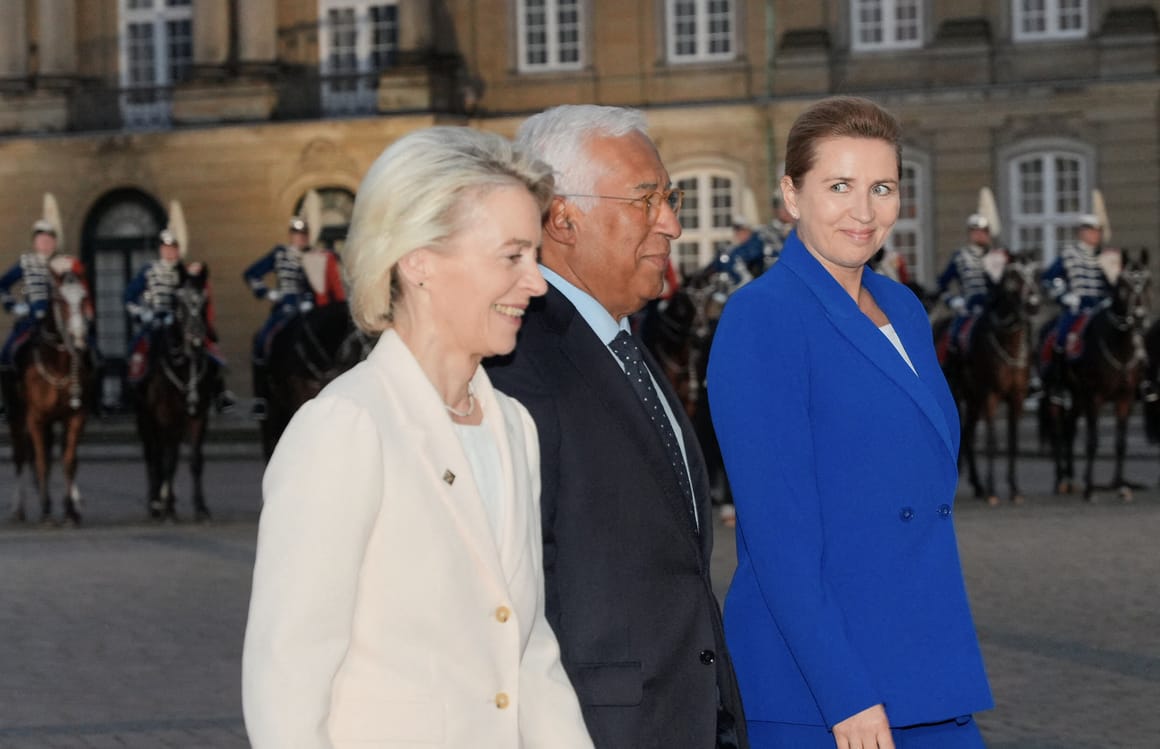Politics
EU Leaders Clash Over Defense Strategies in Copenhagen Summit

COPENHAGEN — During a recent summit in Copenhagen, European leaders grappled with differing views on defense strategies against Russian aggression. Both Ursula von der Leyen, President of the European Commission, and António Costa, President of the European Council, faced substantial pushback as they sought to advance their proposals. The summit, which occurred on October 18, 2023, extended beyond its scheduled conclusion, highlighting the lack of consensus on critical issues.
At the summit, leaders emphasized the urgency of addressing the ongoing conflict with Russia. However, discussions revealed a divide among member states regarding the best course of action. Both von der Leyen and Costa encountered significant resistance, particularly from major EU nations such as Germany, France, and Italy, which expressed concerns over potential overreach by the European Commission. This resistance underscored the reality that the EU’s 27 member nations retain considerable influence over the bloc’s decisions.
Von der Leyen proposed the creation of a “drone wall” intended to identify and neutralize drone threats along Europe’s eastern border. Despite her efforts to rally support, the idea was met with skepticism. Emmanuel Macron, President of France, voiced his reservations, indicating that the plan required a more sophisticated approach. Similarly, Friedrich Merz, Chancellor of Germany, openly criticized the proposal, leading to its anticipated revision or abandonment.
Costa aimed to advocate for a significant change in EU accession rules, which would simplify the process for countries like Ukraine and Moldova seeking membership. He sought to eliminate the need for unanimous consent among member states for new admissions. However, this initiative faltered when it met strong opposition from Hungarian Prime Minister Viktor Orbán, who firmly rejected the proposal during discussions.
Despite these setbacks, leaders agreed to continue exploring methods to utilize approximately €140 billion in Russian assets currently frozen in Europe since the onset of the invasion in 2022 to support Ukraine. They also reiterated their commitment to addressing Russian drone incursions in European airspace, although no definitive solutions emerged from their dialogues.
The summit highlighted the ongoing struggle for leadership and influence within the EU. Both von der Leyen and Costa aimed to demonstrate their commitment to supporting Ukraine, yet they faced challenges from member states reluctant to cede authority over defense matters. The larger EU nations particularly resist any moves that could diminish their control over national defense policies.
Costa’s efforts to assert a leadership role were evident, though many questioned the rationale behind pursuing the contentious enlargement issue given the low likelihood of success. Observers noted that he may have a contingency plan in mind, but specifics were not disclosed.
While officials downplayed criticism that the proposed strategies lacked soundness, they emphasized the importance of leadership in the EU. An anonymous EU official remarked, “It’s just called leadership,” suggesting that ideas are often proposed and refined over time before becoming actionable.
The discussions at the summit underscored the complex dynamics within the EU, where national leaders still wield significant authority. This reality can create tension for those working within the EU’s framework in Brussels, especially as figures like Merz critique the Commission for perceived bureaucratic inefficiencies.
As von der Leyen and Costa return to their respective roles, they face the challenge of navigating these internal divisions while pushing for a unified European response to ongoing threats. The outcomes of this summit indicate that both leaders will need to adopt more collaborative strategies to forge consensus among the diverse interests of EU member states.
-

 Top Stories3 months ago
Top Stories3 months agoTributes Surge for 9-Year-Old Leon Briody After Cancer Battle
-

 Entertainment4 months ago
Entertainment4 months agoAimee Osbourne Joins Family for Emotional Tribute to Ozzy
-

 Politics4 months ago
Politics4 months agoDanny Healy-Rae Considers Complaint After Altercation with Garda
-

 Top Stories4 months ago
Top Stories4 months agoIreland Enjoys Summer Heat as Hurricane Erin Approaches Atlantic
-

 World5 months ago
World5 months agoHawaii Commemorates 80 Years Since Hiroshima Bombing with Ceremony
-

 Top Stories3 months ago
Top Stories3 months agoNewcastle West Woman Patricia Foley Found Safe After Urgent Search
-

 Top Stories5 months ago
Top Stories5 months agoFianna Fáil TDs Urgently Consider Maire Geoghegan-Quinn for Presidency
-

 World5 months ago
World5 months agoCouple Convicted of Murdering Two-Year-Old Grandson in Wales
-

 World5 months ago
World5 months agoGaza Aid Distribution Tragedy: 20 Killed Amid Ongoing Violence
-

 World5 months ago
World5 months agoAristocrat Constance Marten and Partner Convicted of Infant Murder
-

 Top Stories4 months ago
Top Stories4 months agoClimbing Errigal: A Must-Do Summer Adventure in Donegal
-

 Top Stories4 months ago
Top Stories4 months agoHike Donegal’s Errigal Mountain NOW for Unforgettable Summer Views









